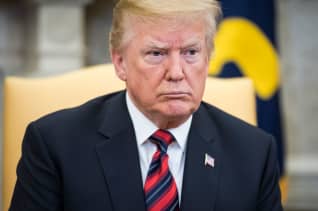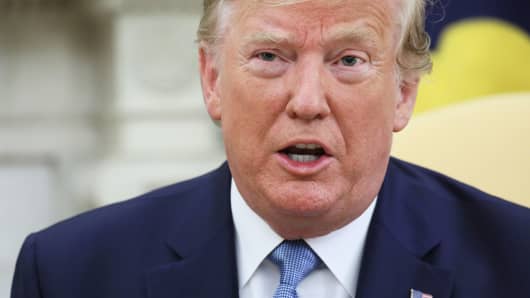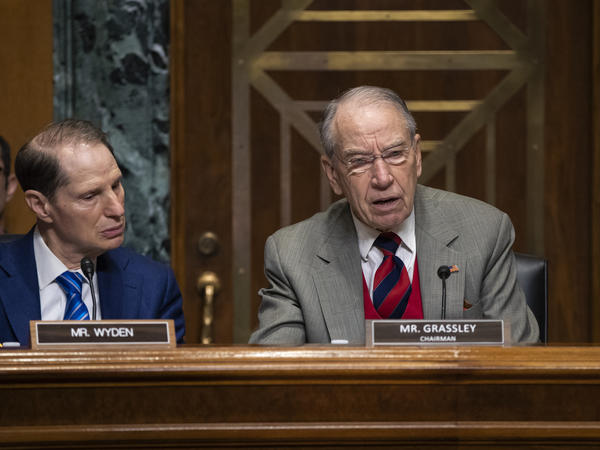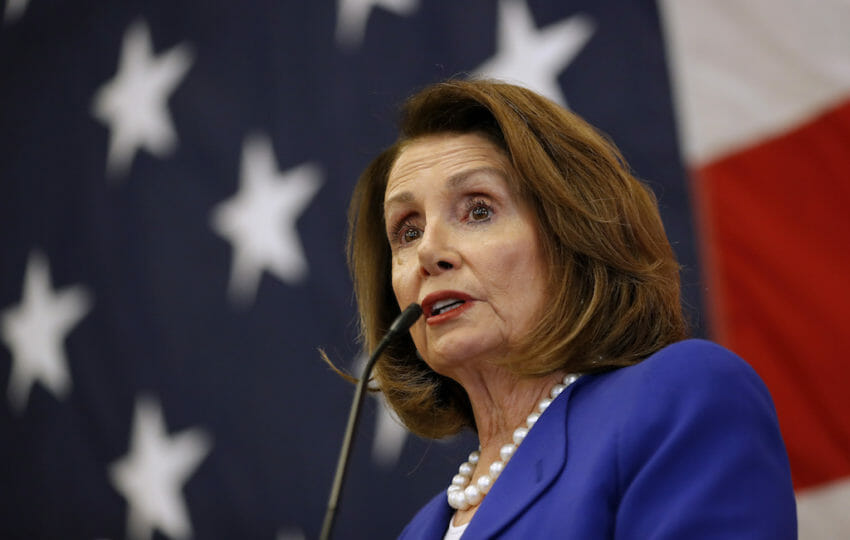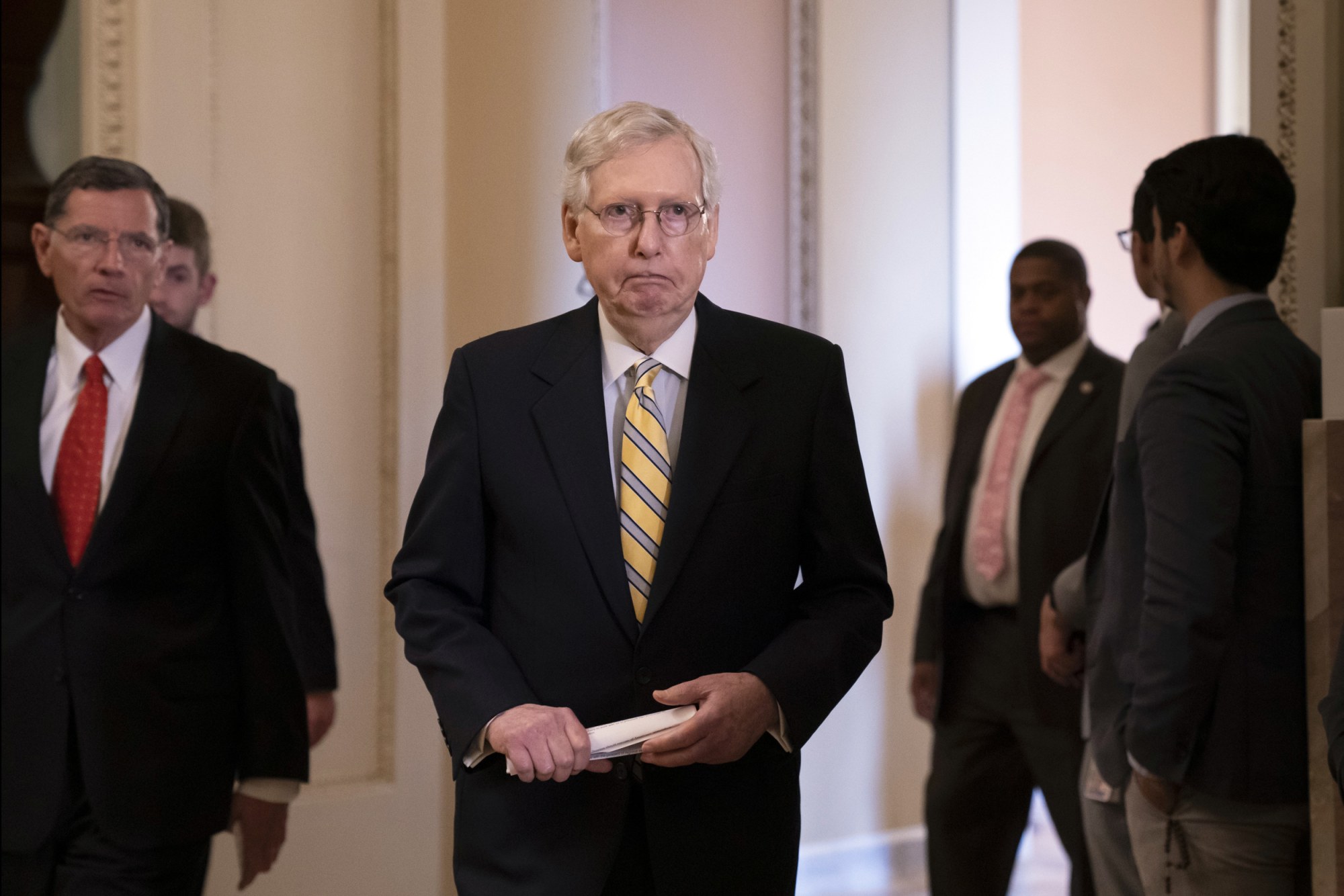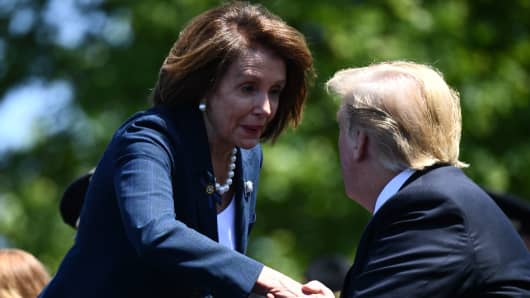Speaker Nancy Pelosi Unveils Plan To Lower Prescription Drug Costs
By Susan Davis | September 19, 2019
House Speaker Nancy Pelosi, D-Calif., unveiled her long-anticipated plan to lower the cost of prescription drugs on Thursday. It is a priority shared by President Trump, fueling a glimmer of hope that there is a deal to be had on the issue ahead of the 2020 elections.
"It is transformative," Pelosi said of her plan."We do hope to have White House buy-in."
The speaker's proposal calls for the federal government, through the health and human services secretary, to negotiate annually prices for the top 250 most expensive drugs on the market that don't have at least two competitors. The price determined by the negotiations would be available to all purchasers, not just Medicare beneficiaries.
The amounts would be pegged to the costs of the same drugs in other countries, which are generally much cheaper, under an "international price index." It would also levy steep fines — starting at 65% of the gross sales of the drug — on drug companies that refuse to engage in negotiations and limit how much drug costs can go up. "This steep, escalating penalty creates a powerful financial incentive for drug manufacturers to negotiate and abide by the final price," the proposal states. The plan calls for reinvesting the taxpayer money saved in negotiations back into drug research at the National Institutes of Health.
The proposal also includes a $2,000 out-of-pocket cap on prescription drugs for Medicare beneficiaries and the disabled.
Pelosi told reporters the proposal was not the last word. "This is an introduction. So much more will be added in the committee process and the public review of it. But we're very excited about it and happy that we can give some hope to people that help is on the way," she said. However, she said empowering the HHS secretary to negotiate drug prices must be included in any final bill.
It is rare for the speaker to take an early and formative role in crafting a bill — policy work generally left to committees — so Pelosi's engagement on the issue sends a clear message that the bill is a top priority for the party. Her office has been quietly negotiating the details of the proposal for months, which Pelosi has run by moderate and progressive factions within the Democratic Caucus ahead of Thursday's official release.
The speaker met Tuesday evening with the Blue Dog Coalition, a faction of moderates who often represent many of the party's swing seats. "We appreciate that Speaker Pelosi took the time to meet with the Blue Dogs to discuss a path forward to lower the cost of prescription drugs," Rep. Stephanie Murphy, D-Fla., a co-chair of the coalition, said in a statement. "Our constituents want to see solutions implemented today, and we hope House Republicans will join in coming forward with bold solutions to bring down drug costs and increase transparency surrounding drug pricing."
A source at the Blue Dog meeting said lawmakers were particularly eager to change the conversation in the House. "Members would like to be talking less about impeachment and more about an issue that their constituents are bringing up at every town hall back home," the source said. "We're eager to see the legislation itself."
Committees are expected to take up the legislation as soon as next week, with the goal of passing it out of the House by the end of the year. There are only 34 legislative days left in 2019. The non-partisan Congressional Budget Office has not yet released an evaluation on the proposal's costs and savings.
Pelosi's proposal is the most sweeping plan on the table, and while traditional Republicans are sure to object, it includes ideas that President Trump has indicated in the past he could support to help drive down drug prices for Americans. If the speaker and the president could come to an agreement, Democrats believe he could bring enough Republicans on board to get it through Congress and signed into law.
The president supports a drug price index, and the administration is reviewing a possible executive order to that end. "Why should other nations like Canada — why should other nations pay much less than us? They've taken advantage of the system for a long time, pharma," Trump told reporters in July.
He also used his State of the Union address earlier this year to call for action to lower drug costs. "It is unacceptable that Americans pay vastly more than people in other countries for the exact same drugs, often made in the exact same place. This is wrong, this is unfair, and together we will stop it. We will stop it fast," he said in February.
The pharmaceutical lobby, with backing from GOP allies, opposes any effort to regulate the drug market. "This proposal crushes the desperate hopes of patients and their families that life science innovators will be the answer to their prayers," said Jim Greenwood, president of the Biotechnology Innovation Organization, which represents biotechnology companies, in a statement in response to the plan. "It abandons any pretense of allowing a free and fair market system to determine the value of prescription medicines, including for the most innovative medical breakthroughs. It will extinguish any incentive for investors to provide the necessary funds to advance biotech medical discovery."
At least one powerful Senate Republican, Finance Committee Chairman Chuck Grassley, R-Iowa,
is willing to buck party orthodoxy to get a bill to lower drug prices.
Grassley and Sen. Ron Wyden, D-Ore., cut a deal in July on legislation that limits out-of-pocket costs for seniors in Medicare's Part D prescription drug program to $3,100 per year starting in 2022.
Grassley moved a draft version of that proposal out of committee over the objection of most Republicans on the Senate Finance panel, who oppose it on free-market principles. His proposal is more modest — the House plan would regulate drug prices more aggressively and outside the scope of Medicare as well — but Grassley is hoping Pelosi's broader bill will help Republicans rally around his.
Grassley has been pitching his proposal to Senate Republicans as the more moderate plan, on an issue generally popular with voters everywhere. He is also warning Republicans that if they do not coalesce around an alternative to offer to the president for his support, Trump could join forces with Pelosi instead.
A spokesman for Grassley said a formal text of his legislation will be introduced soon.


